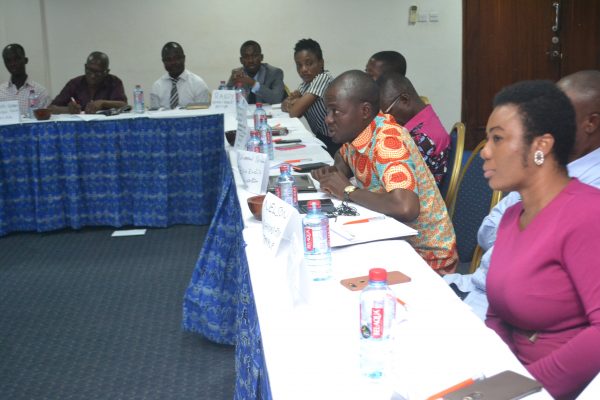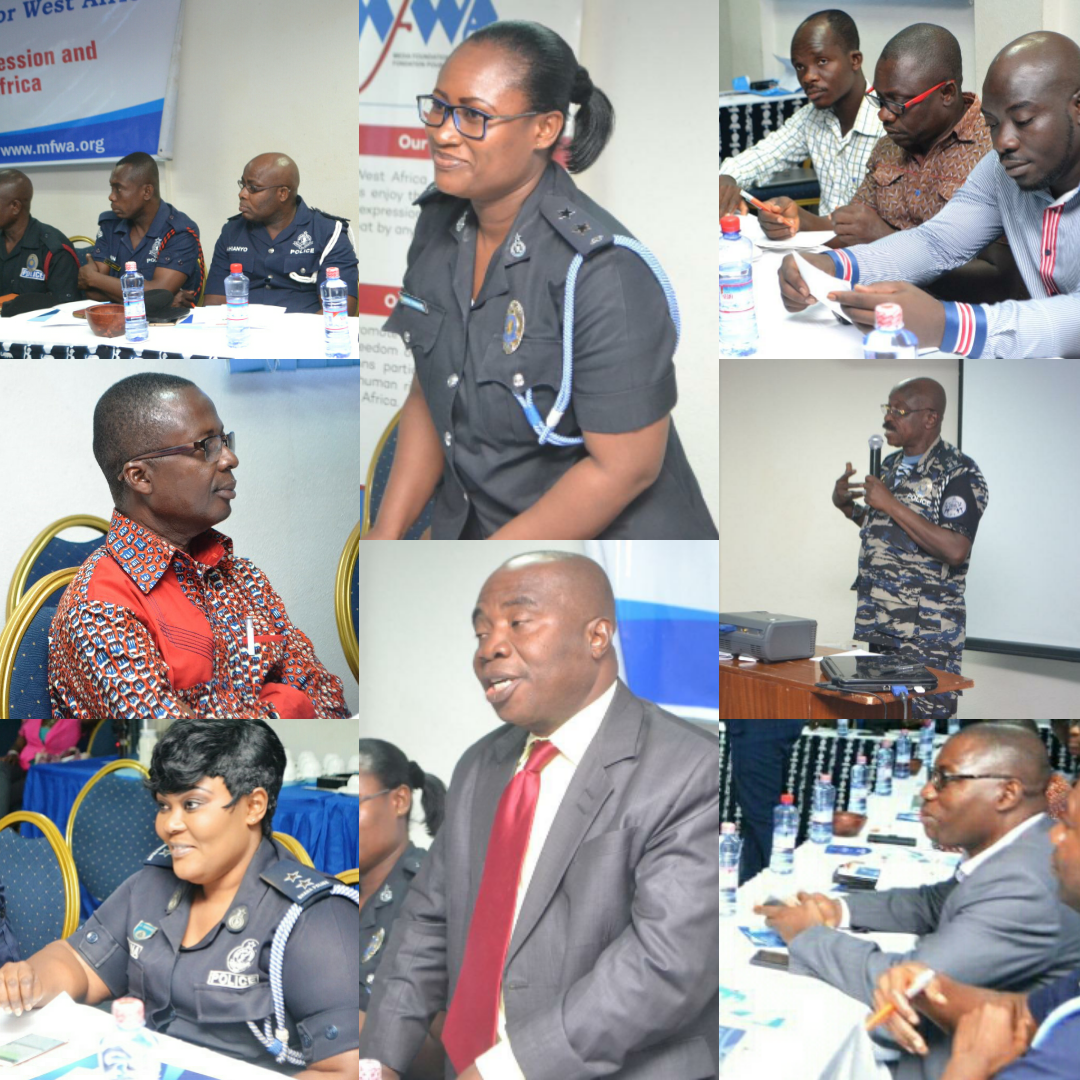Background
The media (journalists) have an important role to play in the upcoming December 7 general elections. The public will be relying on the media for credible information on developments across the country before, during and after the polls.
At the same time, political parties and candidates, interest groups, and other key stakeholders such as the electoral commission, election observers, civil society organisations, and other stakeholders will also be relying on the media (journalists) for disseminating information on emerging issues, for clarifying issues and for expressing any concerns to the public.
Journalists are, therefore, in the midst of competing interests and information throughout the electioneering period. As a result of the competing interests, particularly among political parties and candidates, journalists are likely to become targets of threats and physical attacks by political activists and thugs simply for doing their work – putting out information about activities of parties and candidates, developments at polling stations and collation centres, and acts by activists that could lead to violence, among others.
Also, legitimate processes by journalists to obtain and disseminate accurate information to the public may sometimes run counter to or conflict with operations by security agencies leading to challenges between journalists and the security agencies. This sometimes results in situations where security officials themselves abuse journalists.
 In view of the above, the Media Foundation for West Africa (MFWA) in partnership with the Denmark-based International Media Support (IMS) through its rapid response programme, organised a two-day safety training on November 17 and 18, 2016 for senior journalists and editors from selected media houses across the country.
In view of the above, the Media Foundation for West Africa (MFWA) in partnership with the Denmark-based International Media Support (IMS) through its rapid response programme, organised a two-day safety training on November 17 and 18, 2016 for senior journalists and editors from selected media houses across the country.
The two-day safety training was followed by a Police-Media Dialogue on November 23 to discuss modalities for police-media co-operation and safety of journalists during the coverage of the elections.
Present at the police-media dialogue from the media were a Commissioner of the National Media Commission (NMC), President of the Ghana Journalists Association (GJA), Chairperson of Editors Forum-Ghana, Executive Secretary of the Ghana Independent Broadcasters Association (GIBA), editors and senior journalists from a number of media organisations.
Representing the Ghana Police Service (GPS) were the Director of Operations who also co-ordinates the Elections Task Force; Commander and Deputy Commander of the Counter Terrorism Unit; Commander of the Motor Transport and Traffic Division; Commander of the Formed Unit; Director and Deputy Director of Public Relations all from headquarters of the GPS; as well as Public Relations Officers from the Regional Commands of the GPS.
The dialogue between the police and the media provided an opportunity for the two groups to have frank discussions on the challenges the police have with the media and vice versa. The meeting also discussed modalities for police-media co-operation for ensuring the safety of journalists while covering the elections.
Agreed Modalities for Ensuring Journalists’ Safety
At the end of the media-police dialogue, both sides agreed to the following modalities for ensuring the safety of journalists during the coverage of the elections:
- The Police will make available to the media at national, regional, divisional and district levels, contact numbers for emergency situations and for timely response to questions and clarifications by the media on emerging issues.
- The police will assist journalists requiring support in the event of emergency or during events that expose the journalists to safety risks.
- The police will update media on any new security arrangements that may have implications for the safety of journalists during the coverage of the elections.
- Journalists should know the nearest police stations within the areas they are deployed for coverage and identify themselves to police or security officials in their areas of coverage.
- The media in the regions should liaise with Public Relations Officers at the regional commands of the GPS for emergency numbers and contacts to designated officers for clarifications on any police-related issues.
- Journalists deployed for elections coverage should have conspicuous identification tags.
- Journalists should familarise themselves with the socio-cultural and political context of the areas they are deployed for coverage.
- Journalists must adhere to strict professional practices and safety principles in their coverage of the elections.
- Journalists should avoid courting controversy and getting involved in debates among activists thereby drawing unnecessary attention to themselves.
- As much as possible, journalists should work in groups or link up with each other while providing coverage in the same areas.
- Journalists should avoid acts that have the potential to incite violence.
- Journalists should desist from unduly interfering with the work of election officials.
- Media organisations should endeavor to train volunteers they recruit for elections coverage on safety issues.
